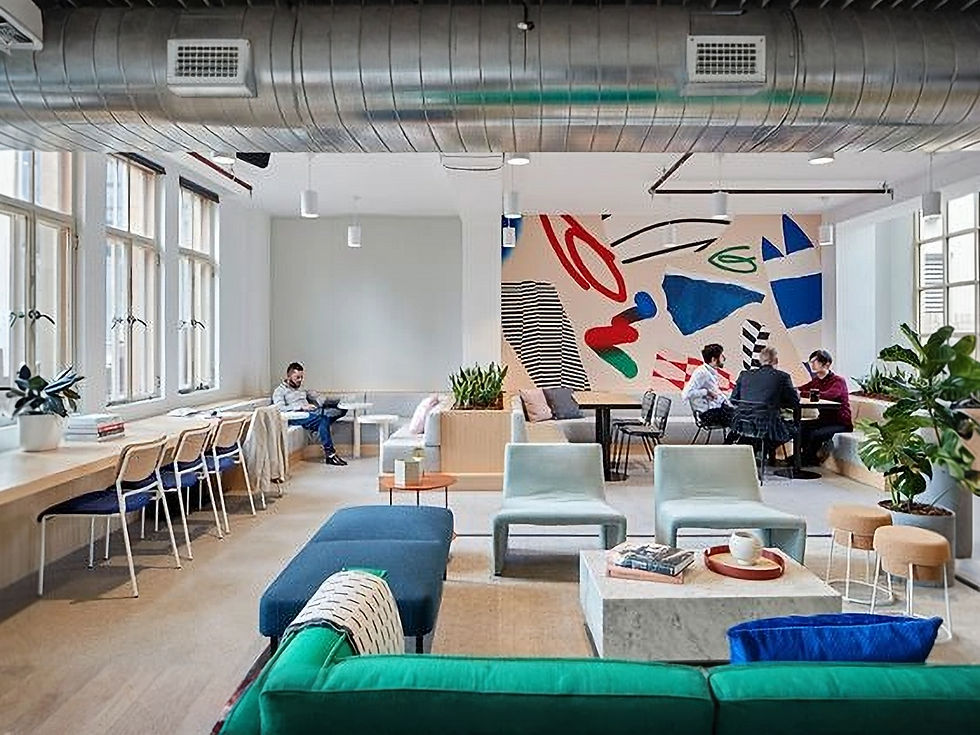The Future of Work: How Millennials and Gen Z Redine the New Workplace Culture
- Dr. Beena Joice

- Oct 26, 2024
- 3 min read

The modern workplace has experienced a wave altering itself especially with the Generation Z and the Millennials taking up their positions. It is now apparent that compared to the previous generations, employees, especially the young ones, do not tend to work for one company for the rest of their lives. Now, let's take a closer look at what these entail for organisations, in terms of opportunities and challenges for the workplace, alongside some guidelines for promoting a positive working environment.

Recent polls show that 70% of Gen Z and Millennials stress flexibility as an essential factor in working. It goes beyond working remotely; it involves working at any time of the day, on projects, or in the organization at large. According to a Deloitte report, it was revealed that approximately 40% of Gen Z and almost 50% of Millennials will quit a job that does not offer such choices.
For example, a young professional who is looking for a partially remote position might have a manager who wants the employee in the office Monday through Friday. It becomes very easy to get frustrated and usually within a short period the employee will search for other opportunities. To accommodate employees’ family needs, companies such as Google and Facebook have adapted to providing employees with policies that allow them to meet their family responsibilities when required. Nonetheless, these models may seem unrealistic for small companies to employ, often having to sacrifice flexibility without achieving enhanced productivity.

Gen Z and Millennials understand technology, apps, and information searching; that’s who they are. This can make them objective and practical, but it also implies that they are impatient especially when things are not done swiftly. In a news article by McKinsey, this younger generation is said to lack the tolerance for waiting for slow systems or unsuitable processes.
Just consider the environment of an office where the management is still carried out by filling papers and typing on a keyboard. Newer employees may lose their patience or grow frustrated and this can lead to even higher levels of Attrition. Rather than replacing the whole system, some firms bring in faster and better solutions incrementally, so it will not be too much for the older staff to handle. This phased integration helps the young and old employees, Gen Z and Millennial workers, and their colleagues from other generations respectively.

Unlike past generations who embraced job security and retention, Gen Z and Millennials are on the hunt for purpose-filled positions. Gallup research has revealed that these employees are more productive when they see the purpose of their work. For instance, a young employee might drop a well-paid job if they feel alienated from the organizational culture or if the values they hold do not find resonance in the work that the organization is doing.
It is possible to implement this practically by encouraging companies to report their mission and social impact initiatives. The employees who have a clear understanding of the organization’s big picture, for example, environmental conservation or corporate philanthropy, are arguably happier and more committed to their work. A few organisations have reported that involving younger employees in such causes gives them a purpose and duty that matches their beliefs.

Finally, managing the turnover of Gen Z and Millennial workforce is still a reality. Contrary to prior generations, young employees often stay in a job barely for a year or two if they do not get what they want. As stated in the SHRM report, the main two issues depicted by many of these young workers are lack of promotional chances and relegation in career mobility.
For instance, if a new employee is not given feedback or if the employee is not provided with options for growth within the company, the employee may quit. The remedy for this doesn’t have to be radical, just activities such as constant encouragement, providing avenues for skill development, and daily check-ins will suffice to make the young employee feel appreciated by the older ones. Certain organizations have been able to manage turnover through organisational change strategies such as quarterly feedback meetings and career development workshops.
Rather than merely modifying procedures, workplaces are transforming into comfortable and communicative environments catered to Gen Z and Millennials. These generations are therefore poised to drive change in the workplace, for organizations to embrace these changes and develop appropriate strategies is the recipe for success and the creation of a motivated workforce.


Comments